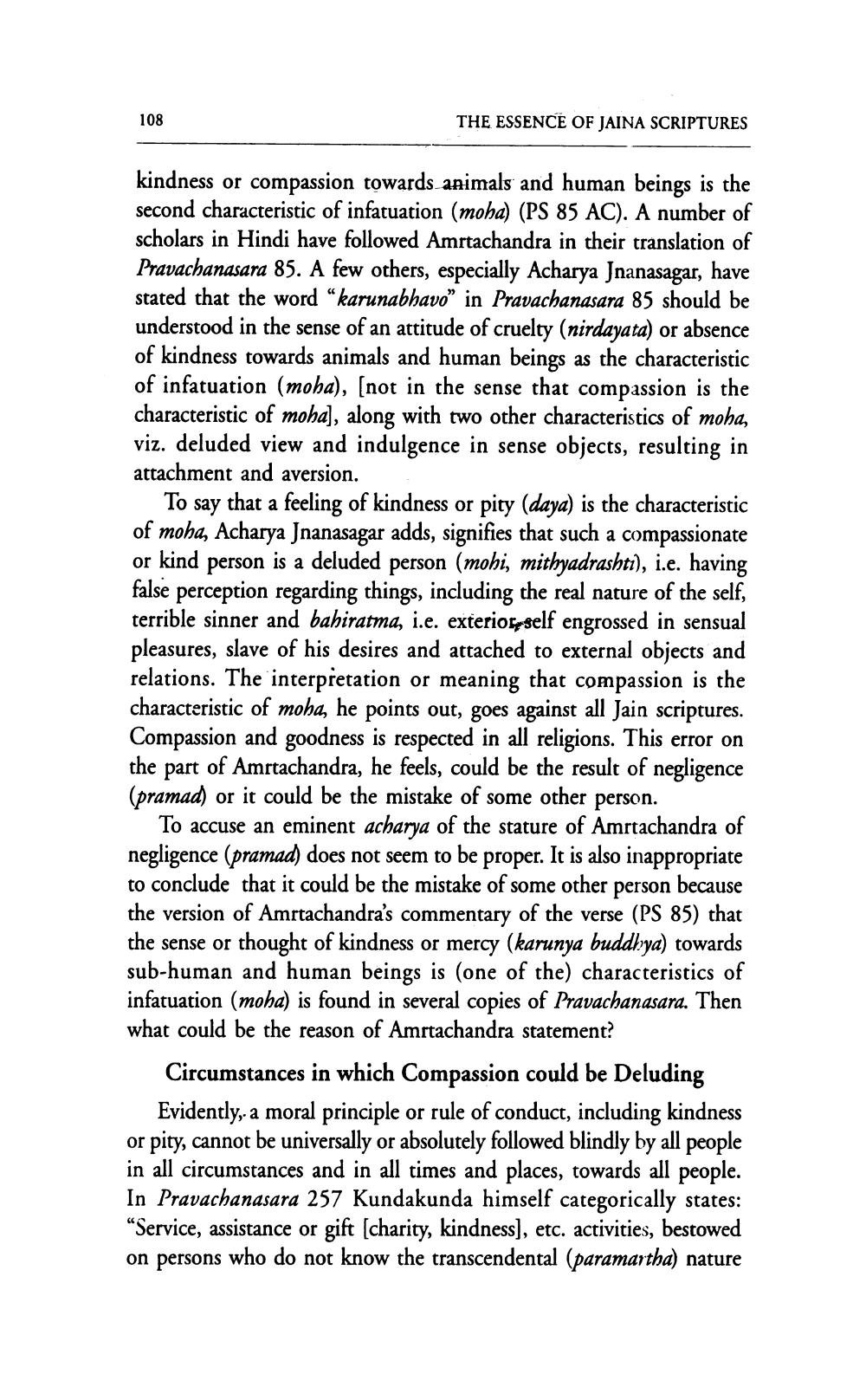________________
108
THE ESSENCE OF JAINA SCRIPTURES
kindness or compassion towards animals and human beings is the second characteristic of infatuation (moha) (PS 85 AC). A number of scholars in Hindi have followed Amrtachandra in their translation of Pravachanasara 85. A few others, especially Acharya Jnanasagar, have stated that the word "karunabhavo" in Pravachanasara 85 should be understood in the sense of an attitude of cruelty (nirdayata) or absence of kindness towards animals and human beings as the characteristic of infatuation (moha), [not in the sense that compassion is the characteristic of moha], along with two other characteristics of moha, viz. deluded view and indulgence in sense objects, resulting in attachment and aversion.
To say that a feeling of kindness or pity (daya) is the characteristic of moha, Acharya Jnanasagar adds, signifies that such a compassionate or kind person is a deluded person (mohi, mithyadrashti), i.e. having false perception regarding things, including the real nature of the self, terrible sinner and bahiratma, i.e. exterior self engrossed in sensual pleasures, slave of his desires and attached to external objects and relations. The interpretation or meaning that compassion is the characteristic of moha, he points out, goes against all Jain scriptures. Compassion and goodness is respected in all religions. This error on part of Amrtachandra, he feels, could be the result of negligence (pramad) or it could be the mistake of some other person.
the
To accuse an eminent acharya of the stature of Amrtachandra of negligence (pramad) does not seem to be proper. It is also inappropriate to conclude that it could be the mistake of some other person because the version of Amrtachandra's commentary of the verse (PS 85) that the sense or thought of kindness or mercy (karunya buddhya) towards sub-human and human beings is (one of the) characteristics of infatuation (moha) is found in several copies of Pravachanasara. Then what could be the reason of Amrtachandra statement?
Circumstances in which Compassion could be Deluding
Evidently, a moral principle or rule of conduct, including kindness or pity, cannot be universally or absolutely followed blindly by all people in all circumstances and in all times and places, towards all people. In Pravachanasara 257 Kundakunda himself categorically states: "Service, assistance or gift [charity, kindness], etc. activities, bestowed on persons who do not know the transcendental (paramartha) nature




